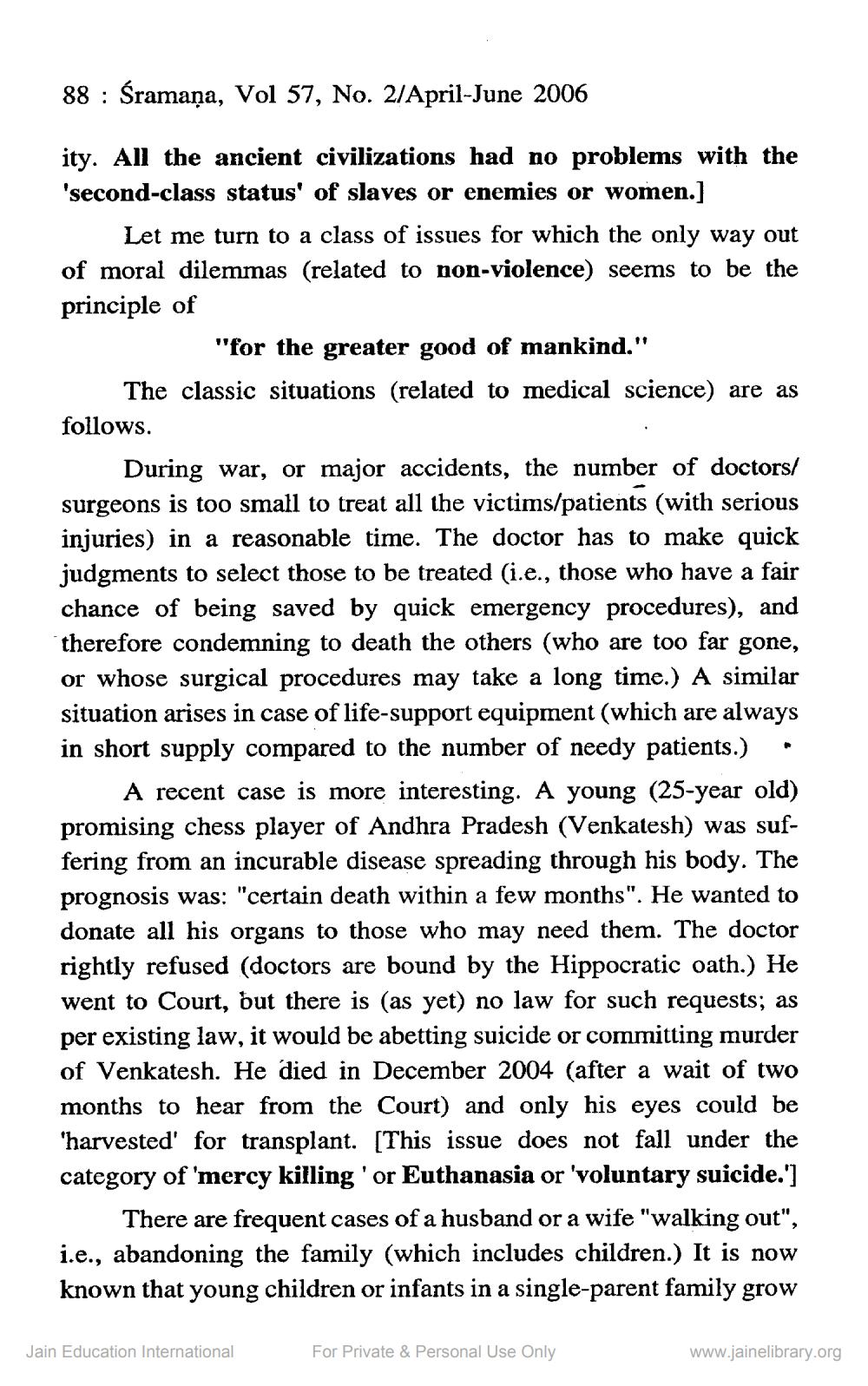________________
88 Śramaņa, Vol 57, No. 2/April-June 2006
ity. All the ancient civilizations had no problems with the 'second-class status' of slaves or enemies or women.]
Let me turn to a class of issues for which the only way out of moral dilemmas (related to non-violence) seems to be the principle of
"for the greater good of mankind."
The classic situations (related to medical science) are as follows.
During war, or major accidents, the number of doctors/ surgeons is too small to treat all the victims/patients (with serious injuries) in a reasonable time. The doctor has to make quick judgments to select those to be treated (i.e., those who have a fair chance of being saved by quick emergency procedures), and therefore condemning to death the others (who are too far gone, or whose surgical procedures may take a long time.) A similar situation arises in case of life-support equipment (which are always in short supply compared to the number of needy patients.)
A recent case is more interesting. A young (25-year old) promising chess player of Andhra Pradesh (Venkatesh) was suffering from an incurable disease spreading through his body. The prognosis was: "certain death within a few months". He wanted to donate all his organs to those who may need them. The doctor rightly refused (doctors are bound by the Hippocratic oath.) He went to Court, but there is (as yet) no law for such requests; as per existing law, it would be abetting suicide or committing murder of Venkatesh. He died in December 2004 (after a wait of two months to hear from the Court) and only his eyes could be 'harvested' for transplant. [This issue does not fall under the category of 'mercy killing' or Euthanasia or 'voluntary suicide."]
"
There are frequent cases of a husband or a wife "walking out", i.e., abandoning the family (which includes children.) It is now known that young children or infants in a single-parent family grow
Jain Education International
For Private & Personal Use Only
www.jainelibrary.org




